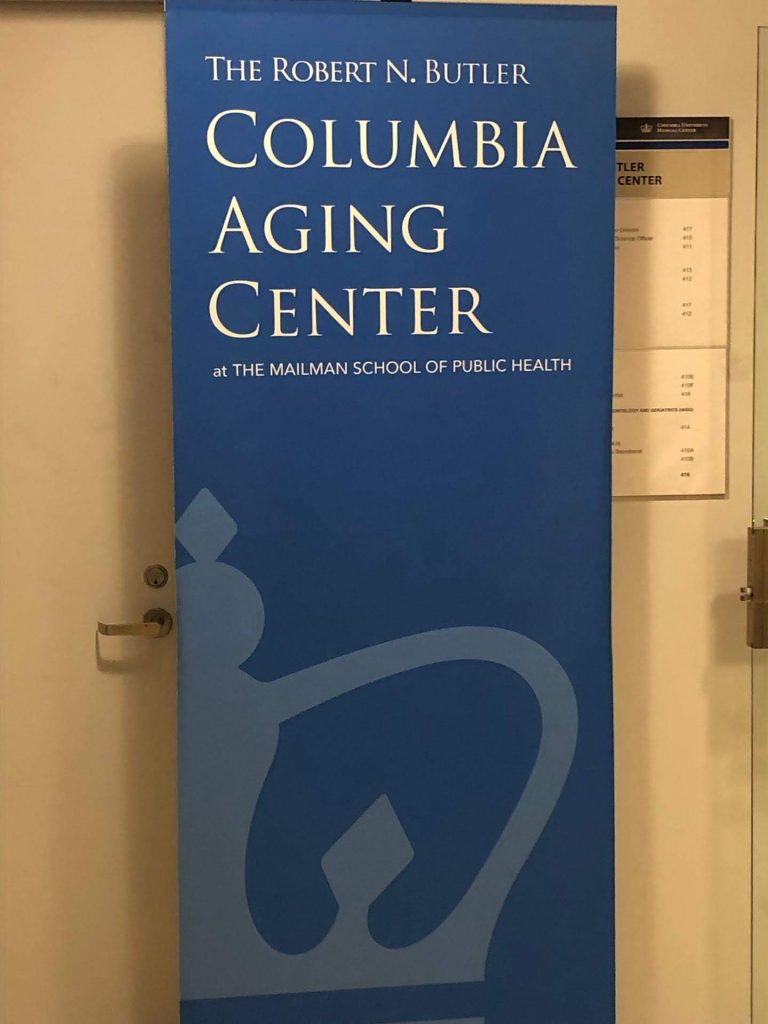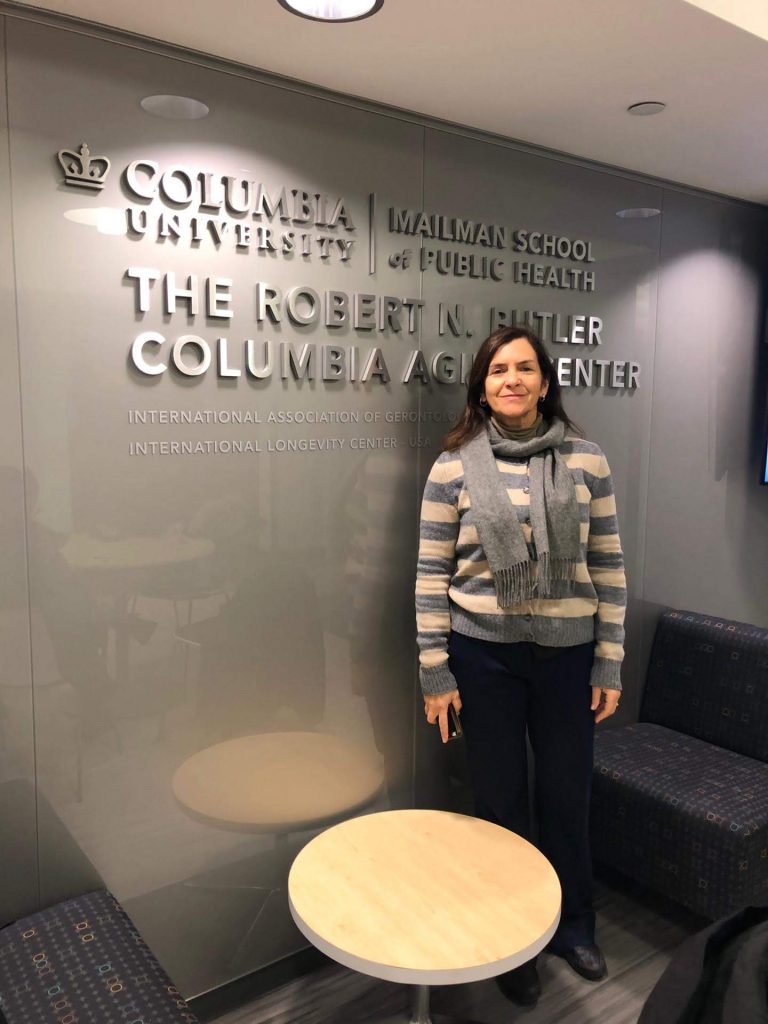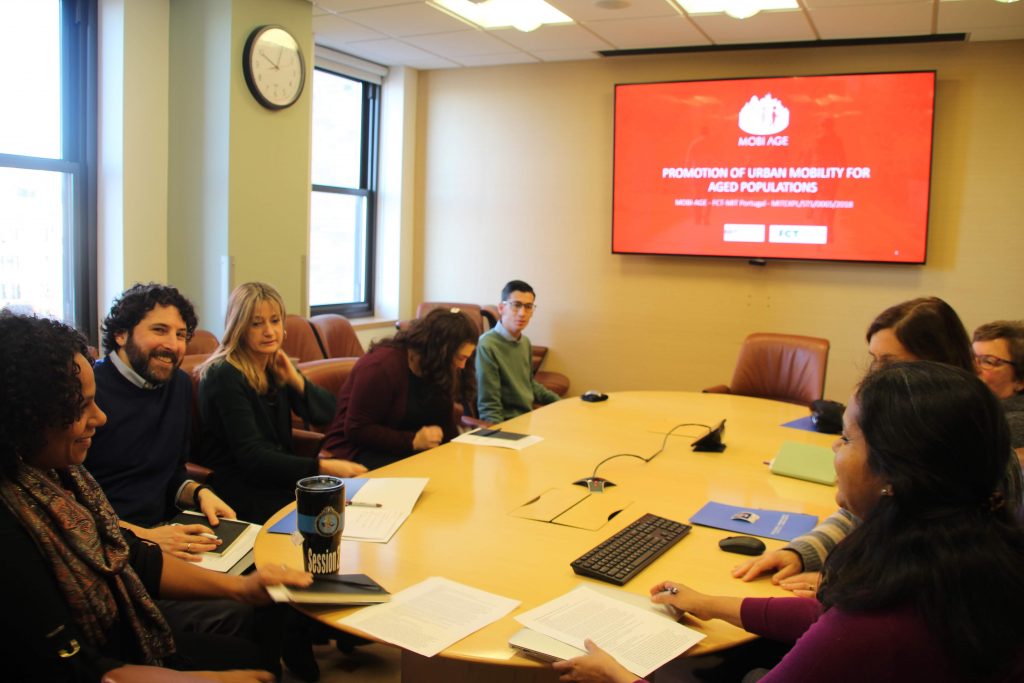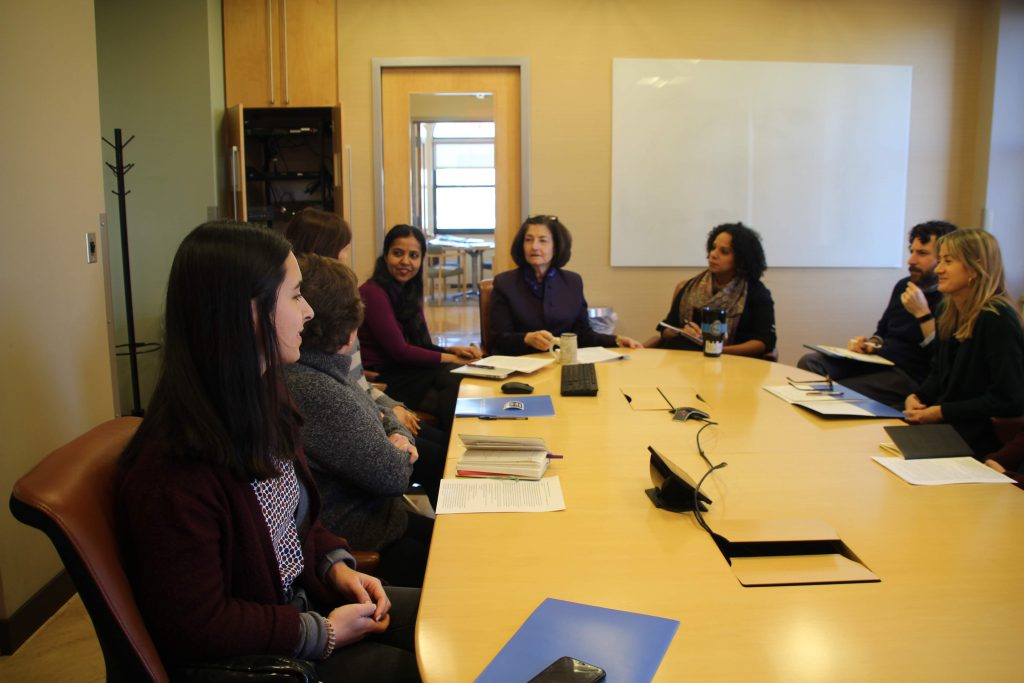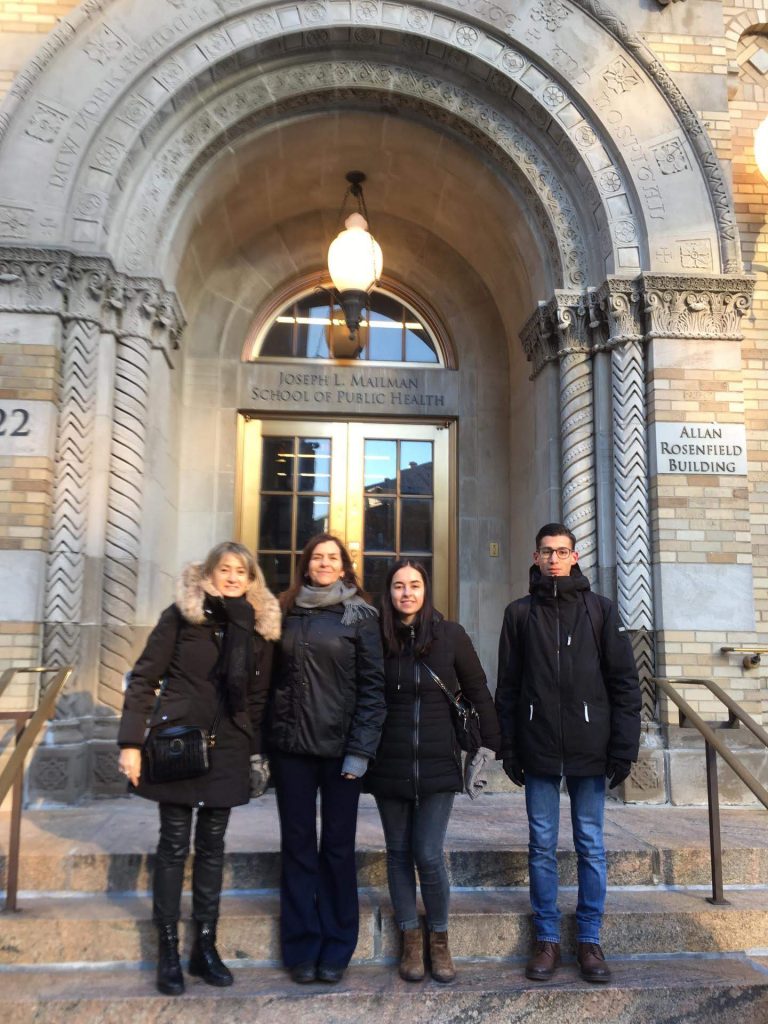On January 21st, the MOBI-AGE team went to the Columbia University where we presented the work we have been developing in the scope of the project.
The Columbia Aging Center is an endowed, university-wide, interdisciplinary research and policy center anchored in the Mailman School of Public Health, one of the world’s leading schools of public health. The Center brings together world-renowned researchers to enable and catalyze the study of aging, health and implications of aging societies, and to develop evidence to support successful aging for individuals and societies alike. One of their main projects is called Bloomingdale Aging in Place- BAiP. BAiP’s mission is to help older adults lead vital, connected, safe and comfortable lives as their needs change. An all-volunteer, intergenerational network of neighbors, BAiP builds community by organizing social activities, sharing information, and extending a helping hand to neighbors as they continue to age at home (https://www.w102-103blockassn.org/bloomingdale-aging-in-place.html).
We were very well received at the Aging Center, namely by Dr. Caitlin M. Hawke and Dr. Linda P. Fried and colleagues. The presentation of the project was made and ended with a productive and interesting discussion addressing two distinct perspectives that relate to the research areas of both teams, namely urban design and transport planning (MOBI -AGE) and health promotion (Aging Center). However, both teams with the same aim, that is, the promotion of active and healthy aging.
Once again, the question of the willingness and capacity of the elderly population to adopt the technologies to access their needs was raised. In this topic, it was mentioned by the MOBI-AGE team that there are alternatives for those who are not available to use these technologies and, at the same time, technologies are always useful in terms of collecting and storing information.
Another issue mentioned is the fact that we are all (MOBI-AGE and Aging Center) working to contribute to a city that, being designed for the needs of the elderly, is a city suitable for the entire population.
Issues such as gender and housing conditions were also mentioned.
This was a first contact between these two teams, however, it is expected that it will be the beginning of an active collaboration between both.
Aging Center website: https://aging.columbia.edu/
